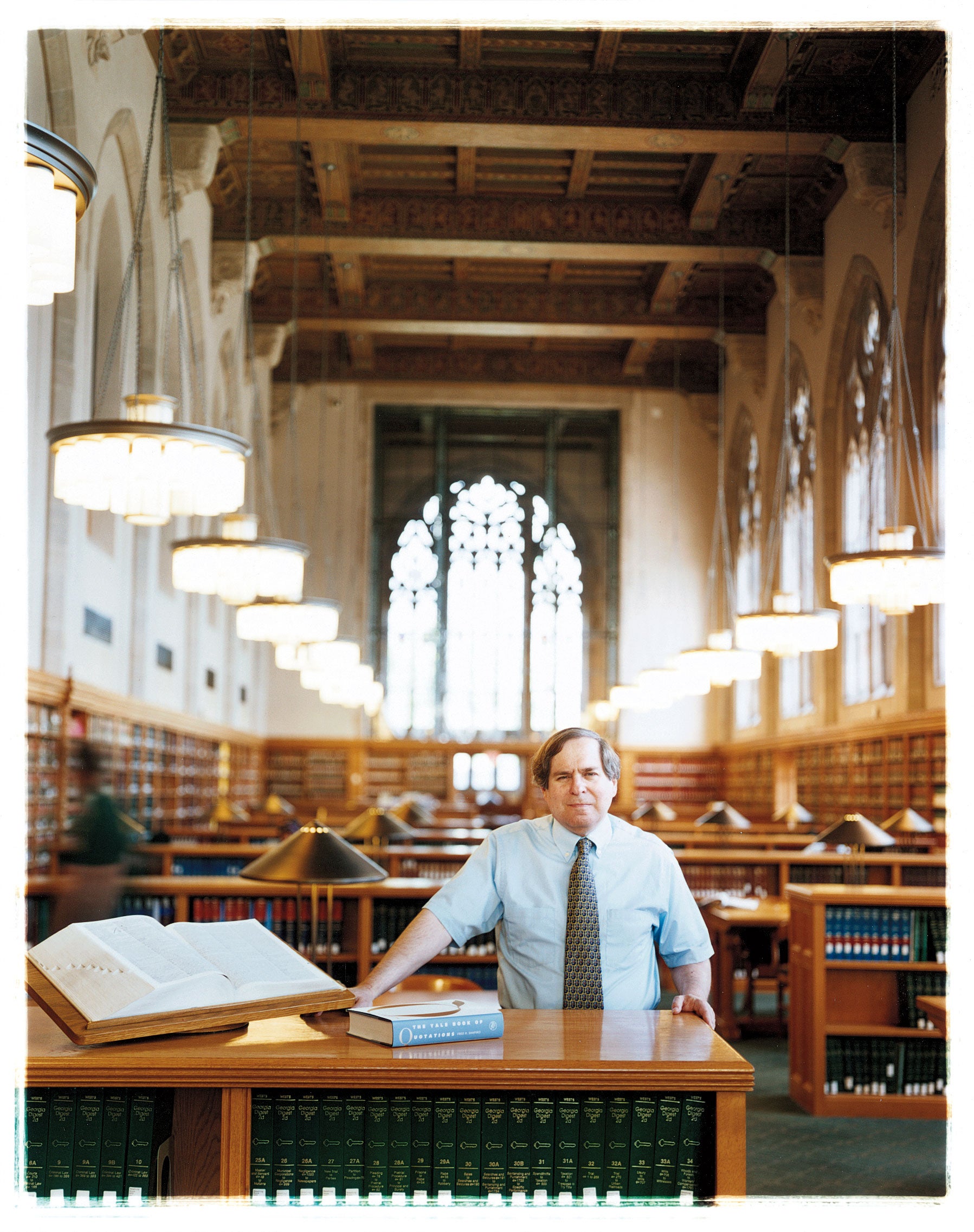A quiz, courtesy of the Potter Stewart of famous quotations
Fred Shapiro ’80 says both science and art came into play in editing “The Yale Book of Quotations.” Associate librarian for Yale Law School, Shapiro relied on the latest research methods to bring together more than 12,000 entries in a volume which he believes rivals “Bartlett’s.” But selecting the most famous, elegant or culturally relevant quotes, he says, is also a question of “I know it when I see it.” Here’s what he saw when it came to selecting some of the most famous quotes by HLS alums. Can you name the speaker for each quote?
1. “The most stringent protection of free speech would not protect a man in falsely shouting fire in a theatre and causing a panic. … The question in every case is whether the words used are used in such circumstances and are of such a nature as to create a clear and present danger that they will bring about the substantive evils that Congress has a right to prevent.”
2. “It was a wise man who said that there is no greater inequality than the equal treatment of unequals.”
3. “And what is so rare as a day in June?”
4. “When you call me that, smile!”
5. “Your right to swing your arms ends just where the other man’s nose begins.”
6. “There are two kinds of lawyers—one who knows the law, the other who knows the judge.”
7. “Let’s talk sense to the American people.”
8. “Have you no sense of decency, sir, at long last? Have you left no sense of decency?”
Sifting for Gems in a Quarry of Sound Bites
We’re not as eloquent as we used to be, says Fred Shapiro ’80. Here, we give him the chance to say something quotable:
Your quiz doesn’t contain any quotes from contemporary grads. Why? The New York Times story on my book invited readers to send in contemporary quotes, because I had fewer of them. I’d invite your readers to do the same [fred.shapiro@yale.edu]. It does take a while for quotations to enter the language and become really famous. But people have become less eloquent nowadays. No one comes up with quotes on the level of Oliver Wendell Holmes or Henry James.
Because of your dual allegiance, this may be an awkward question to answer. But does “The Yale Book of Quotations” contain more quotes from grads of Yale Law School or HLS? We’re on shaky ground here. Let’s just say that because it’s an older school, more established in the 19th century, because of its larger alumni body, Harvard Law School is unique in the number of major writers, judges and politicians that have come from there. I’d leave it at that.
How does “The Yale Book of Quotations” compare to your earlier work, “The Oxford Dictionary of American Legal Quotations”?“The Yale Book of Quotations” is much more interesting to me because it covers all areas of human life and culture, including the law. And by the time I did the Yale book, I had learned a lot about research and I was able to take advantage of new electronic tools. For the legal book of quotations, I had maybe a dozen discoveries. But for the Yale book, I had major discoveries on every page. Now, I’m really favoring one child over the other, but because of the new material, including quotations from British and other non-American sources, “The Yale Book of Quotations” is actually the best book of legal quotations.
Answers to Who Said It?
A quiz, courtesy of the Potter Stewart of famous quotations
- Oliver Wendell Holmes Jr. LL.B. 1866, Schenck v. United States (1919)
- Felix Frankfurter LL.B. 1906, Dennis v. United States (dissenting opinion) (1950)
- James Russell Lowell LL.B. 1840, “The Vision of Sir Launfal” (1848)
- Owen Wister LL.B. 1888, “The Virginian” (1902)
- Zechariah Chafee Jr. LL.B. 1913, Harvard Law Review (June 1919)
- Joseph H. Choate LL.B. 1902, quoted in Arthur Train’s (LL.B. 1899), “Mr. Tutt Comes Home” (1941)
- Adlai E. Stevenson 1922-1924, speech accepting presidential nomination (July 26, 1952)
- Joseph N. Welch LL.B. 1917, remark to Sen. Joseph McCarthy (June 9, 1954)
